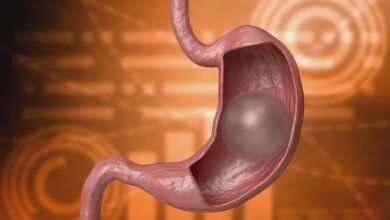Understanding Allergy Causes , Symptoms, and Treatment Options

In this comprehensive guide, we will delve into the intricate world of Allergy Causes, exploring their various causes, symptoms, and the myriad of treatment options available. Whether you’re someone who has been dealing with allergies for years or you’re just beginning to wonder if those sneezes and sniffles are more than just a passing cold, this article aims to provide you with a thorough understanding of this common health issue.
Now, let’s dive into the world of allergies and gain a deeper understanding of what they are and how they affect our lives.
Allergies are more than just a mere inconvenience. They can disrupt your daily routine, affect your quality of life, and in severe cases, pose a significant health risk. In this article, we will explore the causes of allergies, their symptoms, and the wide range of treatment options available to manage and alleviate allergic reactions effectively.
What Are Allergies?
Understanding Allergens
Allergies occur when the immune system reacts abnormally to substances that are usually harmless. These substances are known as allergens and can vary from person to person. Common allergens include pollen, dust mites, pet dander, certain foods, and insect stings.
Read More: The Future of Natural Remedies for Allergies
Immune System’s Role
The immune system’s primary function is to defend the body against harmful invaders like bacteria and viruses. However, in individuals with allergies, the immune system mistakenly identifies allergens as threats and launches an attack. This immune response triggers a cascade of reactions that lead to allergy symptoms.
Common Allergic Reactions
Allergic reactions can manifest in various ways, depending on the allergen and individual sensitivity. The most common types of allergic reactions include:
Respiratory Allergies
Respiratory allergies often result in symptoms like sneezing, coughing, runny or congested nose, and itchy, watery eyes. These reactions are typically triggered by airborne allergens such as pollen, mold spores, and dust mites.
Skin Allergies
Skin allergies can lead to rashes, hives, itching, and redness. Common skin allergens include certain foods, latex, and plants like poison ivy.
Food Allergies
Food allergies can cause a wide range of symptoms, from mild hives and stomach discomfort to severe anaphylactic reactions. Common food allergens include peanuts, tree nuts, shellfish, and dairy products.
Drug Allergies
Some individuals may develop allergies to certain medications, leading to symptoms such as skin rashes, swelling, or difficulty breathing. It’s crucial to be aware of potential drug allergies when starting a new medication.
Causes of Allergies
Understanding the underlying causes of allergies can help individuals manage their condition more effectively. Several factors contribute to the development of allergies:
Genetic Predisposition
Genetics plays a significant role in determining an individual’s susceptibility to allergies. If one or both parents have allergies, their children are more likely to develop them as well.
Environmental Factors
Environmental factors, such as exposure to allergens during childhood, can influence allergy development. Growing up in a high-pollution area or having early contact with allergens can increase the risk.
Hygiene Hypothesis
The hygiene hypothesis suggests that excessive cleanliness and limited exposure to germs during early childhood may contribute to the development of allergies. This theory highlights the importance of balanced immune system development.
Recognizing Allergy Symptoms
Identifying allergy symptoms is crucial for prompt diagnosis and treatment. Allergy symptoms can vary widely, but they generally fall into several categories:
Nasal Allergy Symptoms
Nasal allergy symptoms often include sneezing, congestion, a runny nose, and itchy or watery eyes. These symptoms are typical of allergic rhinitis, commonly known as hay fever.
Skin Allergy Symptoms
Skin allergy symptoms manifest as redness, itching, hives, or eczema. These reactions can occur when the skin comes into contact with allergens or certain substances.
Gastrointestinal Allergy Symptoms
Gastrointestinal allergy symptoms may include nausea, vomiting, diarrhea, or abdominal pain. These symptoms commonly occur in response to food allergens.
Systemic Allergy Symptoms
Systemic allergic reactions are severe and can be life-threatening. Symptoms may include difficulty breathing, swelling of the face or throat, rapid pulse, and a drop in blood pressure. This is known as anaphylaxis and requires immediate medical attention.
Diagnosing Allergies
If you suspect you have allergies, it’s essential to undergo proper diagnosis. Allergy testing and a thorough medical history assessment can help identify the specific allergens causing your reactions.
Allergy Testing
Allergy testing may involve skin tests, blood tests, or elimination diets. These tests help pinpoint the allergens triggering your symptoms, enabling better management and treatment.
Medical History Assessment
A detailed medical history assessment, including questions about family history, previous allergic reactions, and lifestyle, can provide valuable insights into your allergies.
Treatment Options
Thankfully, various treatment options are available to help individuals manage their allergies effectively. These options can be tailored to suit the type and severity of your allergies.
Allergen Avoidance
The first line of defense against allergies is to avoid allergens whenever possible. This may include strategies such as using air purifiers, maintaining a clean home, and being cautious about food choices.
Medications
Medications, such as antihistamines, decongestants, and corticosteroids, can help relieve allergy symptoms. These drugs are available in various forms, including pills, nasal sprays, and eye drops.
Immunotherapy
Immunotherapy, often referred to as allergy shots, can help desensitize individuals to specific allergens over time. This treatment is particularly beneficial for severe allergies.
Natural Remedies for Allergies
In addition to conventional treatments, some natural remedies may offer relief from allergy symptoms. These can include herbal supplements, saline nasal rinses, and steam inhalation.
Lifestyle Adjustments
Simple lifestyle adjustments can make a significant difference in managing allergies. Strategies such as maintaining a clean living space, practicing good hygiene, and monitoring pollen counts can help reduce exposure to allergens.
Allergies in Children
Allergies can affect individuals of all ages, including children. Understanding childhood allergies is essential for parents and caregivers.
Childhood Allergies
Childhood allergies are becoming increasingly common. Common allergens in children include food, pollen, and animal dander.
Allergy Testing in Children
Allergy testing in children may require special considerations. Pediatric allergists use age-appropriate methods to diagnose and manage allergies in young patients.
Management and Treatment
Managing allergies in children involves a combination of allergen avoidance, medication, and lifestyle adjustments. It’s crucial to work closely with healthcare professionals to ensure your child’s well-being.
Allergies and Seasonal Changes
Allergies can be particularly troublesome during specific seasons when certain allergens, like pollen, are prevalent. Understanding how seasonal changes impact your allergies can help you prepare and manage symptoms effectively.
Living with Allergies
Living with allergies can be challenging, but with the right knowledge and strategies, you can lead a fulfilling life. Coping strategies and allergy-proofing your home are essential aspects of managing allergies.
Coping Strategies
Coping strategies may include stress management techniques, dietary adjustments, and regular exercise to boost the immune system.
Allergy-Proofing Your Home
Creating an allergy-friendly home environment involves minimizing allergen exposure through cleaning, air purification, and pet care practices.
Read More: The Latest Research on Allergy Causes and Treatments
Conclusion
In conclusion, allergies are a prevalent health concern that affects millions of people worldwide. While they can be disruptive and sometimes even life-threatening, a combination of allergen avoidance, medication, and lifestyle adjustments can help individuals lead a normal life. It’s essential to stay informed about the causes and symptoms of allergies, as well as the available treatment options, to effectively manage this condition. Remember that seeking guidance from healthcare professionals is crucial for proper diagnosis and treatment. With the right knowledge and strategies, you can minimize the impact of allergies on your life and enjoy better health and well-being.
FAQs
Can allergies develop later in life?
Yes, allergies can develop at any age, although they often appear in childhood.
What is the most common food allergy?
Among food allergies, peanuts, tree nuts, milk, eggs, and soy are the most common allergens.
Can allergies be cured?
While allergies cannot be cured, they can be effectively managed and sometimes outgrown, especially in children.
What are the potential side effects of allergy shots (immunotherapy)?
Common side effects of allergy shots include redness and swelling at the injection site, itching, and mild allergy symptoms. Severe reactions are rare but possible.
Is it possible to prevent allergies in children?
While allergies cannot always be prevented, early introduction of certain foods and a healthy lifestyle may reduce the risk of allergy development in children.







